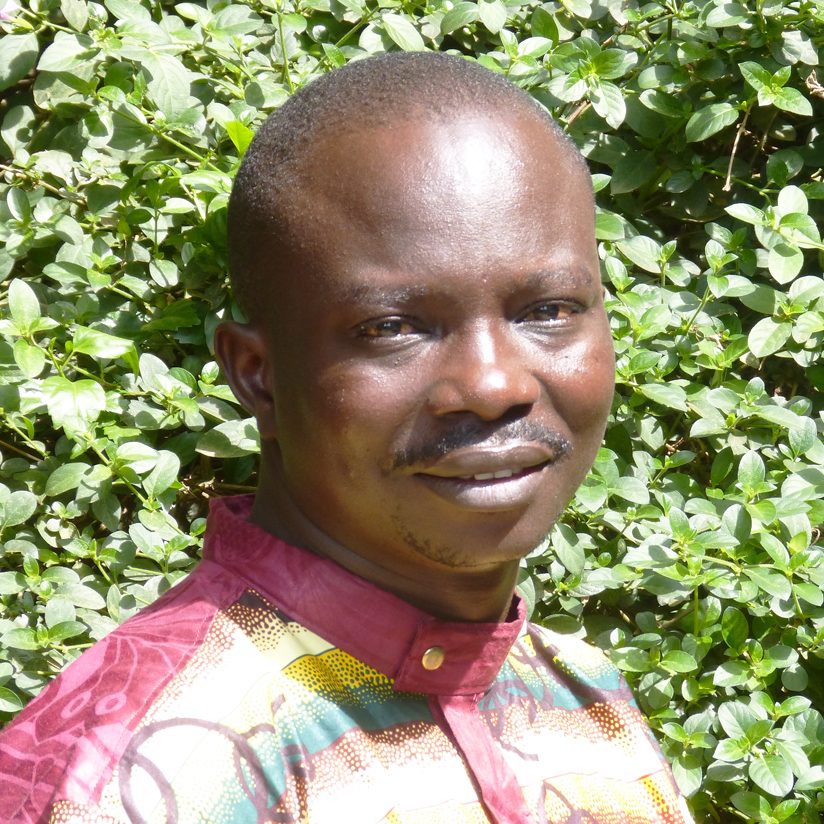
I immediately took it upon me to carry on with this message whenever I visit. I want to pass this message to as many people as I can because truly Bilharzia has been a neglected disease that has claimed many lives.
– Julius Omony Pagara
Julius Omony Pagara’s grandfather, father-in-law and uncle died of Bilharzia. His mother was sick for five years before a doctor diagnosed her with the disease so that she was finally able to get proper treatment.
But it wasn’t until Pagara was hired by the Johns Hopkins Center for Communication Programs in Uganda to translate radio programs produced by its Bilharzia Prevention Campaign from Alur to English that he became something of an evangelist for keeping people safe from the disease.
Soon he was spreading the messages of prevention – wear gloves and boots when working or playing or bathing in the water – to those who make their living along Uganda’s Lake Albert, talking to fisherman and women who gather gravel and snails to sell at market and whoever else he came in contact with. His job was just to translate the radio shows but sharing what he learned became his passion.
Bilharzia (also known as schistosomiasis) is an illness that develops when people come into contact with water contaminated with disease-causing worms which penetrate the skin without detection and move throughout the body causing severe sickness. Its root cause is poor sanitation, including the widespread practice of using lakes and rivers instead of toilets or latrines. Those same bodies of water are used for washing clothes and dishes, bathing and fishing, playing and more, creating a cycle of disease.
“I immediately took it upon me to carry on with this message whenever I visit” Lake Albert, he says. “I want to pass this message to as many people as I can because truly Bilharzia has been a neglected disease that has claimed many lives.”
The people he speaks to are responding to him, he says. Some have heard the radio programs. Others learn something new from their interactions with him.
“I encouraged them to be putting on gumboots when they are in the water,” he says. “And one of them named Christine said she had gumboots but didn’t know that they could be of great help to her and she promised to begin putting them on.”